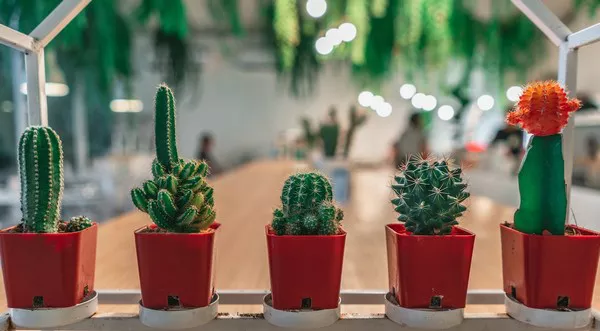Maintaining a thriving vegetable garden comes with its share of challenges, and one of the most persistent and frustrating issues for gardeners is dealing with pests. Whether it’s the tiny aphids or the notorious tomato hornworm, pests can wreak havoc on your carefully nurtured plants.
Integrated Pest Management (IPM) Approach
Embracing an Integrated Pest Management (IPM) approach is a fundamental step in effectively controlling pests in your vegetable garden. IPM involves a combination of preventive measures, cultural practices, biological controls, and, if necessary, targeted pesticide use. By employing a holistic strategy, gardeners can minimize the impact of pests while maintaining the overall health of the garden. Regular monitoring of plants, early detection of pest infestations, and prompt action are key components of an IPM program.
Companion Planting for Pest Control
Companion planting involves strategically placing plants in close proximity to enhance the overall health and resilience of the garden. Certain plants have natural properties that can repel or confuse pests, acting as a form of biological pest control. Marigolds, for example, are known to deter nematodes, while basil can help protect tomatoes from certain insect pests. By carefully selecting companion plants and interplanting them with your vegetables, you create a more harmonious and pest-resistant environment.
Beneficial Insects as Allies
Introducing beneficial insects to your garden can be a powerful method of pest control. Ladybugs, lacewings, and predatory beetles are natural predators of common garden pests like aphids and mites. By attracting and supporting these beneficial insects, you create a balanced ecosystem where pests are kept in check. Planting nectar-rich flowers and providing shelter for these helpful insects enhances their presence in your garden, contributing to a natural and sustainable form of pest management.
Row Covers and Netting
Physical barriers such as row covers and netting can be effective in preventing pests from reaching your vegetable plants. Row covers made of lightweight fabric allow sunlight and water to reach the plants while creating a barrier that keeps pests at bay. This method is particularly useful for protecting crops from flying insects like cabbage moths and carrot flies. When using row covers, it’s important to secure the edges to prevent pests from finding entry points, ensuring comprehensive protection for your vegetables.
Neem Oil and Horticultural Oils
For gardeners seeking organic solutions, neem oil and horticultural oils are valuable tools in pest control. Neem oil, derived from the neem tree, has insecticidal and fungicidal properties. It disrupts the feeding and reproductive cycles of many pests, making it an effective and environmentally friendly option. Horticultural oils, such as dormant oil, smother pests like scales and mites by coating them and disrupting their respiratory functions. These oils are safe for plants and beneficial insects when used according to the recommended guidelines.
Diatomaceous Earth for Crawling Insects
Diatomaceous earth is a natural substance made from fossilized diatoms, and it acts as an abrasive powder that is lethal to crawling insects. When sprinkled around the base of plants or on affected areas, diatomaceous earth pierces the exoskeleton of insects, causing them to dehydrate and perish. This method is particularly effective against pests like slugs, snails, and crawling beetles. Ensure the diatomaceous earth remains dry for optimal efficacy, as it loses its effectiveness when wet.
Homemade Insecticidal Soap
Insecticidal soaps, made from simple ingredients like soap and water, can be effective against soft-bodied pests such as aphids, spider mites, and whiteflies. Mix a mild soap, preferably one without additives like fragrance or moisturizers, with water and spray the solution on affected plants. The soap disrupts the insect’s cell membranes, leading to dehydration and ultimately controlling the infestation. It’s important to test the solution on a small portion of a plant before widespread application to ensure there are no adverse effects.
Trap Crops for Targeted Pest Management
Strategically planting trap crops is an effective way to divert and manage pest populations in your vegetable garden. Trap crops are plants that are particularly attractive to certain pests, drawing them away from your main crops. For example, planting nasturtiums can attract aphids away from your vegetables. Monitor the trap crops regularly and take appropriate action, such as removing or treating the infested plants, to prevent the pests from migrating back to your main crops.
Cultural Practices for Pest Prevention
Implementing cultural practices that promote the overall health of your vegetable garden can reduce the likelihood of pest infestations. Proper spacing between plants, adequate ventilation, and regular removal of debris and fallen leaves create an environment less conducive to pests. Watering at the base of plants rather than overhead reduces humidity, minimizing conditions favorable to fungal diseases and certain pests. Additionally, rotating crops annually helps disrupt the life cycles of pests and prevents the buildup of specific soil-borne pathogens.
Chemical Pesticides with Caution
While chemical pesticides should be a last resort, there are situations where their use may be necessary for effective pest control. If opting for chemical pesticides, choose products specifically formulated for the target pests, and follow the application instructions carefully. It’s crucial to use pesticides with caution, considering their potential impact on beneficial insects, wildlife, and the environment. Always explore less toxic alternatives first, and reserve chemical interventions for severe infestations that cannot be managed through other means.
Conclusion
Effectively controlling pests in your vegetable garden requires a multifaceted approach that combines preventive measures, natural remedies, and, when necessary, targeted interventions. By adopting an Integrated Pest Management (IPM) approach and leveraging the power of companion planting, beneficial insects, physical barriers, and organic solutions like neem oil and insecticidal soaps, you can strike a balance that protects your crops while preserving the health of your garden ecosystem. Regular monitoring, early detection, and proactive measures will empower you to maintain a thriving vegetable garden that withstands the challenges posed by pests.


